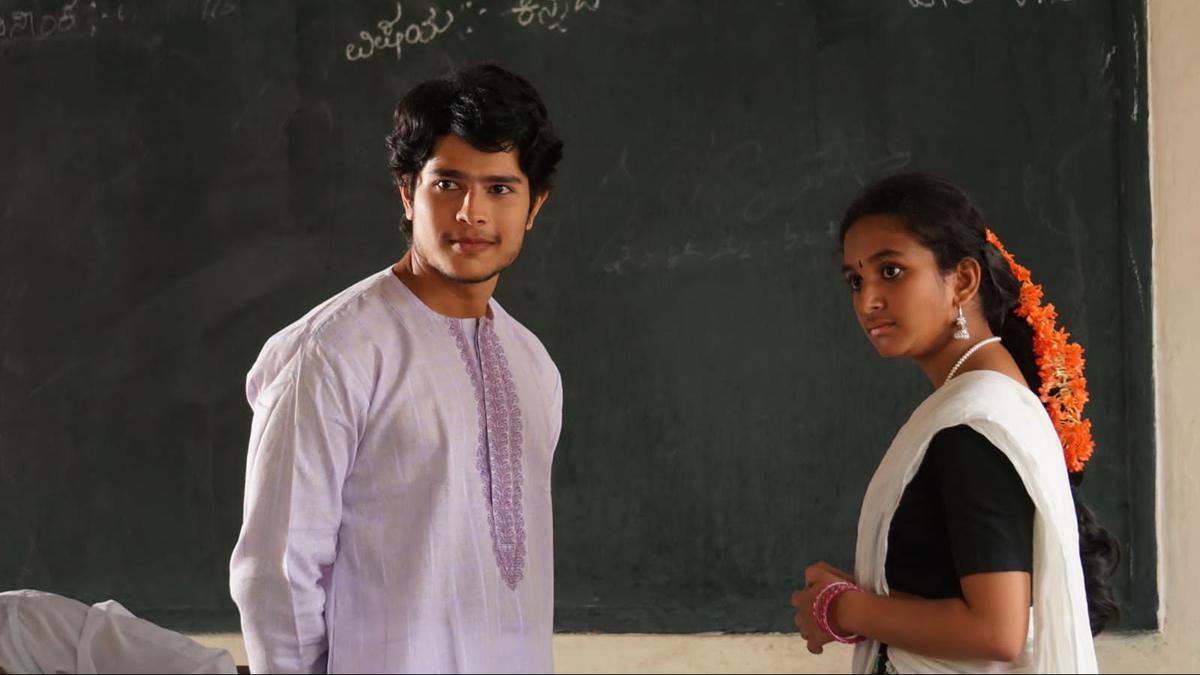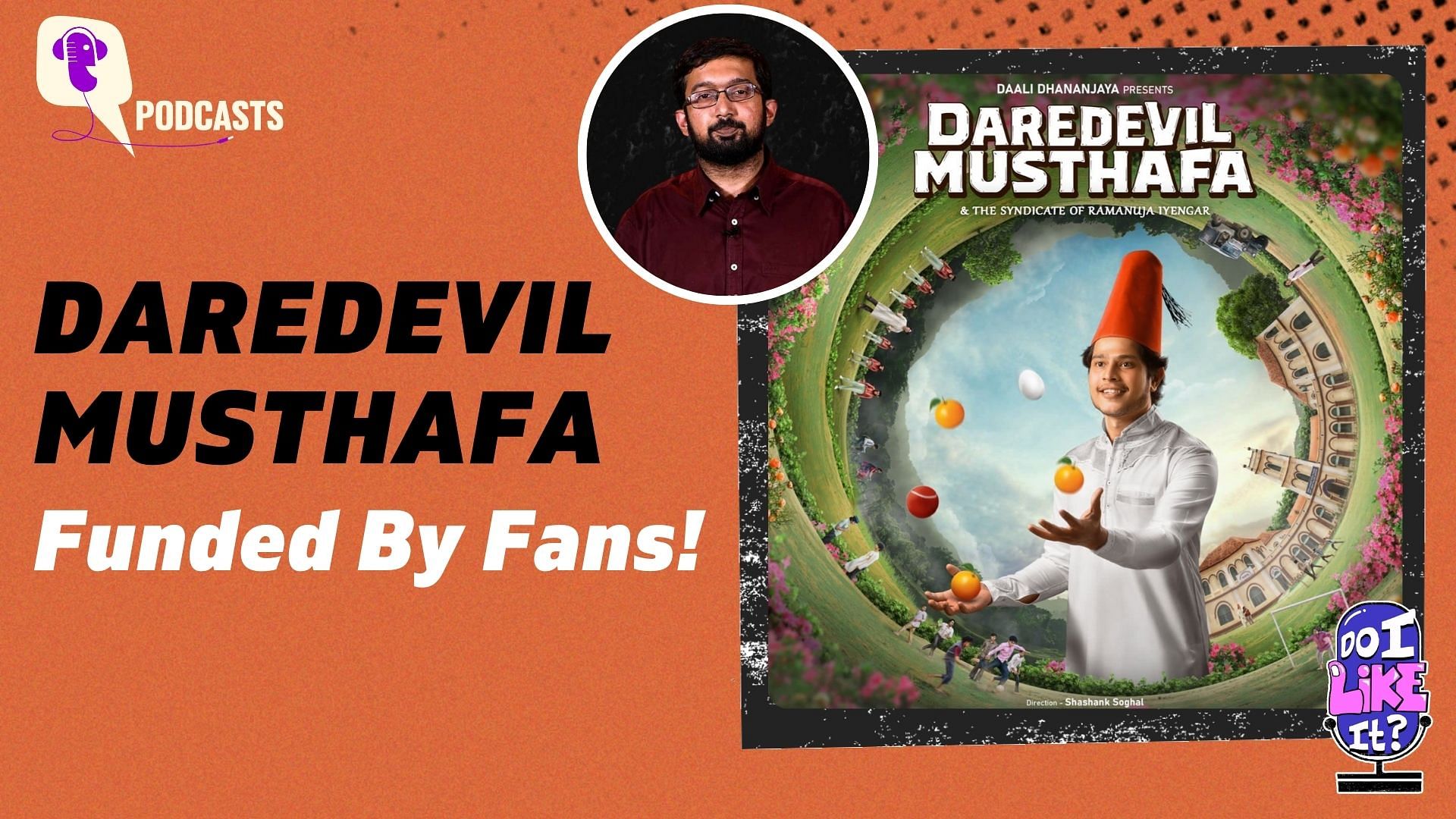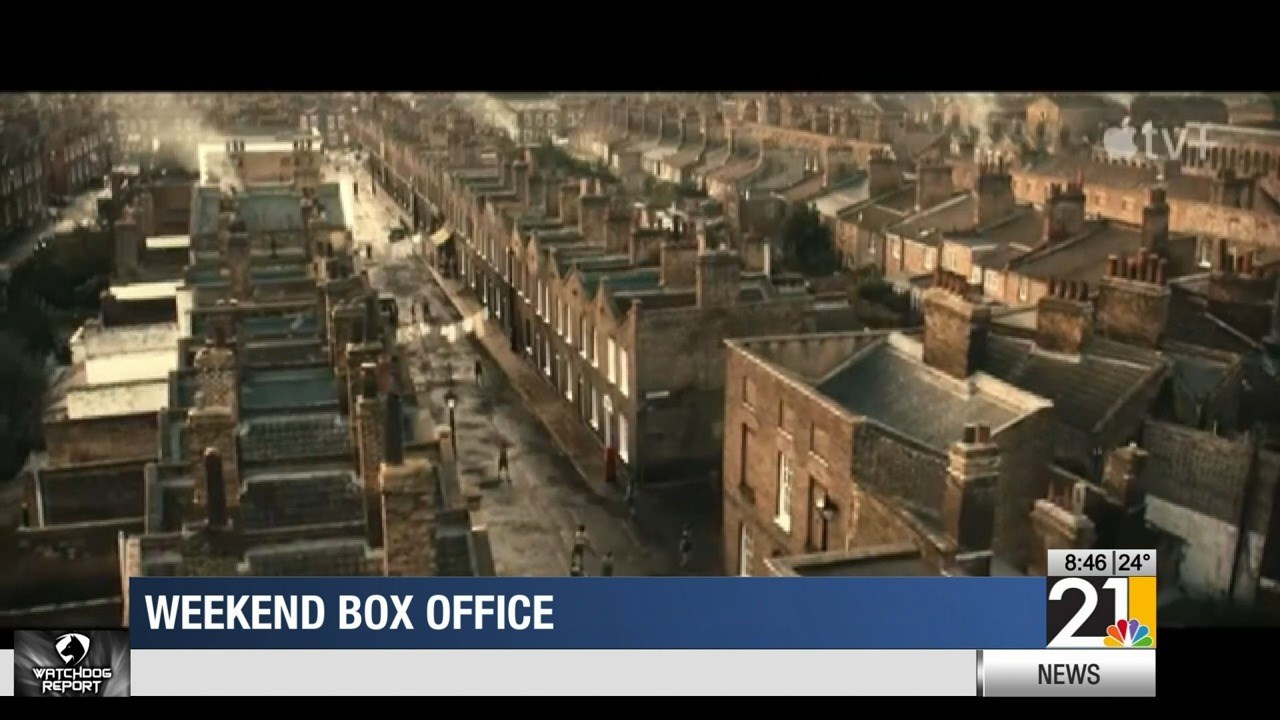The very fact that there haven’t been many book-to-screen adaptations in Kannada since the start of the millennium, makes debutant Shashank Soghal’s Daredevil Musthafa a brilliant feat. He has aced the path less travelled with a solid execution of legendary writer Poornachandra Tejaswi’s short story by the same name (written five decades ago).
Fans and critics are wary of rookie filmmakers who promise unique content; the young directors are either blinded by passion or their works turn out to be pretentious. A few minutes into Daredevil Musthafa, these worries disappear, never to return, as you experience a supremely engaging and delightfully entertaining film.
The dedicated fans of Tejaswi are sure to appreciate the on-screen translation of the writer’s trademark balancing of humour with seriousness. At the same time, Daredevil Musthafa breaks the belief that newcomers’ films are low on production quality; the film is more or less thoroughly professional in all departments, doing justice to its crowd-funded money. Shashank’s journey of turning an idea into reality takes us back to 2013 when Pawan Kumar turned a new page in Kannada cinema with his crowd-funded psychological thriller Lucia.
Daredevil Musthafa begins with a clip from one of Tejaswi’s interviews, in which he expresses his displeasure at youngsters engaging in communal violence. Set in a fictional town called Abachuru, the film shows people’s perceptions of Muslims — they are seen as mysterious people, celebrating festivals and doing chores that seem bizarre to the eyes of others. It’s a sensitive town with a reputation for communal tension.
No wonder students of Abachuru College are shocked to hear about the arrival of Jamal Abdul Mustafa Hussain (Shishir Baikady), the only Muslim student in the entire college. Shashank has used cinematic liberty with hilarious wordplay that keeps getting funnier as the film progresses.
The long name of Musthafa is compared to a mantra, Hanuman’s tail, and a botanical name. Musthafa naturally becomes the subject of students’ gossip. Their ignorance makes them think stereotypically of a Muslim as they wonder if he is from the Tipu Sultan clan, bathes in perfume, and fixes punctures without water. Soon, Ramanuja Iyengari (Aditya Ashree) and the gang are furious over Musthafa for weaving his magic on girls and teachers.
A still from ‘Daredevil Musthafa’
| Photo Credit:
Special Arrangement
Daredevil Musthafa is a fine example of making a vibrant college drama. Reliable performers in Mandya Ramesh and Nagabhushana keep the humour delightfully palatable. Handling children and teenage performers isn’t everyone’s cup of tea; filmmakers tend to mistake exaggerated innocence or dramatic emotions for realistic performances. In Daredevil Musthafa, the youngsters don’t overdo their roles, keeping their characters true-to-life.
Shashank carefully recreates a simpler era, yet the film feels contemporary in its form thanks to Navneeth Shyam’s peppy score. The director’s meticulousness in adapting the story to screen lies in his character development. For instance, Musthafa repeats he is “Daredevil” whenever someone tries to dominate him needlessly in the story, but in the film, he utters it only once. Yet, you are convinced because of how well the director projects Musthafa’s confident and fearless personality.
Daredevil Musthafa offers an admirable tribute to Dr. Rajkumar. The now-famous animated song doesn’t hinder the film’s flow. By imaginatively building the world of Poochanthe (Tejaswi’s pen name), the film is a treat for the writers’ fans, while those unaware of him might get inspired to read his works.
ALSO READ:‘Gurudev Hoysala’ to ‘Kabzaa’: Are Kannada films facing the heat of IPL 2023
The film deviates from the original story in the final act. Though he doesn’t overtly stress it, Tejaswi ensures an underlying presence of the perils of religious differences in society in his stories. Shashank doesn’t downplay this aspect despite catering to the needs of mainstream cinema. A song amidst a fight sequence — that speaks of living in harmony — has a powerful impact.
However, his attempt to end the film on a rousing note with a cricket match in the climax fails in execution. The story meanders with an alleged puppy love story (involving Prerana MS), and the final hurrah is deliberately delayed. A bit of self-indulgence from the director kills the potential for a heart-warming ending.
All in all, it was refreshing to see a Muslim hero on screen, a rare phenomenon today. What’s also relevant for today’s times is the film’s message, and thankfully, it comes with entertainment. This little gem, presented by Dhananjaya and KRG Studios, is the best Kannada film of the year yet.
Daredevil Musthafa releases in theatres this Friday




/cloudfront-us-east-1.images.arcpublishing.com/gray/7INAFFL4SBGP7N6OJ6222GEZKU.bmp)




















/cdn.vox-cdn.com/uploads/chorus_asset/file/25782636/247422_ChatGPT_anniversary_CVirginia.jpg)
/cdn.vox-cdn.com/uploads/chorus_asset/file/25789444/1258459915.jpg)

/cdn.vox-cdn.com/uploads/chorus_asset/file/25546252/STK169_Mark_Zuckerburg_CVIRGINIA_D.jpg)


/cdn.vox-cdn.com/uploads/chorus_asset/file/23951353/STK043_VRG_Illo_N_Barclay_3_Meta.jpg)